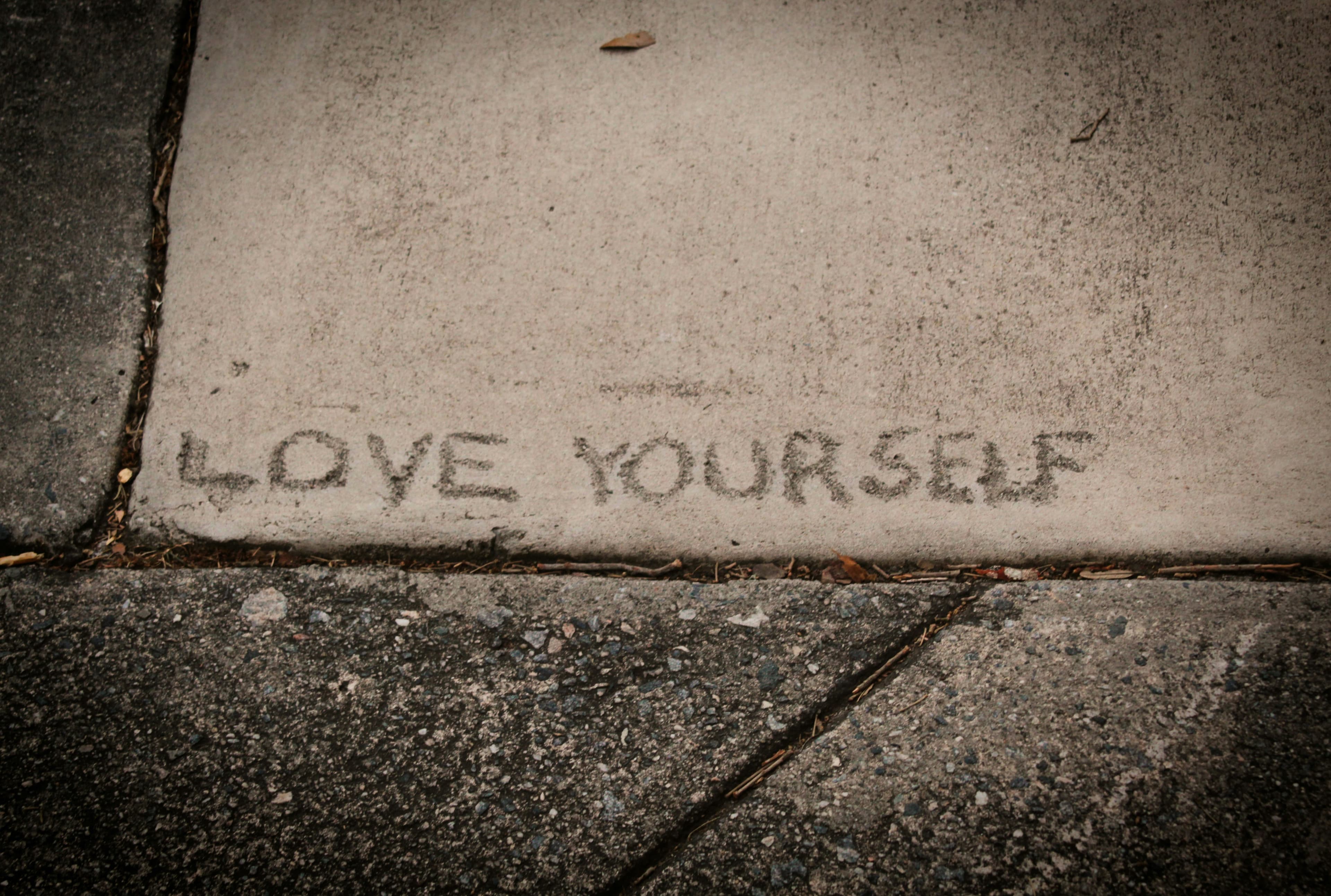Therapy for self-esteem & self-worth

You often feel like you are not enough. The inner critic finds your flaws, dismisses your successes, and makes it hard to believe anything good about yourself. You may feel like an imposter, crave reassurance, or worry you are unlovable. This constant self doubt is painful, but it can heal. Therapy helps you understand where these beliefs came from and build a steady sense of worth that does not depend on approval.
Understanding self-esteem and self-worth
The crucial distinction
Self-esteem and self-worth are related but different. Self-esteem is how you judge your abilities and performance, which means it rises with success and falls with setbacks. Self-worth is deeper and reflects your belief that you have value simply because you exist. Many people try to earn worth through achievement or approval, which creates temporary highs followed by sharp drops. According to research on self-esteem, wellbeing comes from both realistic confidence and unconditional self-acceptance, which therapy helps strengthen.
Where low self-worth comes from
Low self-worth often begins in childhood through criticism, neglect, conditional love, bullying, or cultural messages that made you feel unacceptable. These experiences shape core beliefs such as feeling unlovable or defective. Research shows these beliefs influence how you interpret events, leading you to amplify negatives and minimize positives. Over time, the inner critic feels like truth even though it reflects old experiences rather than your actual worth.
Self-esteem in Canada
Sources: Canadian Women's Foundation and CAMH data also confirms that reports of low self-esteem among students have nearly doubled since 2015.
The pervasive impact of low self-worth
Constant self-criticism and negative self-talk
The inner critic dominates your thoughts, dismissing achievements, exaggerating mistakes, and comparing you to others. This constant pressure creates ongoing stress and makes it difficult to feel satisfied with anything you do. Small errors feel much larger than they are. Research shows chronic self-criticism raises the risk of depression, anxiety, and physical health issues by keeping the stress response activated.
Difficulty accepting love and maintaining relationships
When you doubt your worth, connection feels unsafe. You may push people away, cling too tightly, or settle for treatment that hurts you because it feels familiar. Compliments feel uncomfortable and intimacy feels risky because it reveals parts of you that you fear are not acceptable. This creates relationships where reassurance never feels enough, even when others show genuine care.
Self-sabotage and avoiding opportunities
Low self-worth often leads to avoiding goals that matter. You hold back from applying for roles, taking risks, or stepping into new experiences because you expect failure. When you do succeed, you may undermine it without realizing why. This cycle reinforces the belief that you are not capable, keeping you in situations that do not reflect your potential.
People-pleasing and loss of identity
When your sense of worth depends on others, you rely on approval to feel acceptable. You hide authentic needs, adapt to what others want, and measure yourself by external reactions. Without validation you feel empty, which leads to exhaustion and the sense that others do not truly know you. Over time, it becomes difficult to recognize who you are beneath the roles you perform for acceptance.
How therapy rebuilds self-esteem and self-worth
Developing genuine, unconditional self-acceptance
Therapy helps you challenge negative thoughts, set healthier boundaries, and accept positive feedback, while also addressing deeper beliefs about your value. You explore the origins of your self-worth wounds and grieve the acceptance you should have received. Through consistent care and unconditional regard, your therapist offers an experience of being valued simply for who you are. Over time, this reshapes your internal narrative and supports genuine self-compassion.
What self-esteem therapy involves
Therapy begins by exploring the messages and experiences that shaped your self-worth, helping you see that low self-esteem is learned rather than a reflection of who you are. You examine the origins of your inner critic and create distance from its voice by recognizing it as something you absorbed, not a truth about you. From there, you practice self-compassion, learn to speak to yourself with kindness, accept positive feedback, acknowledge achievements, and gradually tolerate feeling good about yourself without minimizing or deflecting. Over time, this work reshapes how you understand and relate to yourself.
Therapeutic approaches for building self-worth
Cognitive Behavioural Therapy (CBT)
CBT effectively addresses low self-esteem by helping you notice and challenge distorted thinking such as overgeneralization, mental filtering, discounting positives, or harsh labels. You examine evidence for these beliefs, create more balanced interpretations, and try small behavioural experiments that test what happens when you act as though you are worthy.
Compassion-Focused Therapy (CFT)
CFT targets shame and self-criticism that feed low self-worth. You learn to see your critical voice as a protective system that developed under stress rather than a reflection of truth. Through guided imagery and practice, you build a compassionate inner voice that responds with warmth, understanding, and encouragement.
Schema Therapy
Schema therapy works with deep beliefs formed in childhood such as feeling flawed, expecting failure, or believing you are unlovable. You explore where these beliefs came from, how they affect your behaviour today, and how to replace them with healthier ways of seeing yourself through cognitive work and supportive therapeutic experiences.
Acceptance and Commitment Therapy (ACT)
ACT teaches you to notice self-critical thoughts without accepting them as truth. You practice observing thoughts like “I am not good enough” with curiosity rather than fear. You also take actions that reflect your values even when doubt appears. These actions create real evidence that challenges old beliefs about your worth.
Psychodynamic Therapy
Psychodynamic work explores how early relationships shaped how you see yourself. You examine how you may have internalized critical or distant caregivers and how those patterns show up now. The therapeutic relationship becomes a place where you experience steady acceptance and value, which begins to shift long-held beliefs about your lovability.
Narrative Therapy
Narrative therapy helps you examine the stories you tell about yourself. You look at where these stories came from, what they leave out, and what strengths they ignore. By choosing stories that reflect resilience and capability, you build a more balanced and empowering sense of identity.
The journey to genuine self-worth
Assessment and recognizing patterns
Early sessions focus on noticing where low self-worth shows up, what triggers it, and how your inner voice speaks to you. You explore early experiences that shaped these beliefs, often realizing they were learned responses to difficult environments. This creates understanding and reduces shame.
Challenging and reframing core beliefs
You examine beliefs such as “I am not enough” and replace them with more balanced thoughts. You also process the emotions behind these beliefs, including grief for acceptance you did not receive. This helps weaken old patterns and build a more grounded view of yourself.
Developing self-compassion
You learn to speak to yourself with warmth during difficult moments and practice exercises that build a kind inner voice. At first it feels unfamiliar, but with repetition self-compassion grows and becomes a steady source of support.
Behavioral changes and practicing worthiness
You begin acting as though you are worthy by accepting compliments, setting boundaries, and taking healthy risks. These actions give real evidence that challenges low self-worth. When old patterns appear, you learn to notice them and choose new responses.
Timeline and sustainable change
Meaningful change often takes a few months, with early shifts appearing within weeks. Over time you build a steadier sense of worth that does not collapse when life is hard. Success means greater self-kindness, resilience, and a stable sense of value independent of achievement.
Find a therapist who specializes in self-esteem & self-worth
Choosing the right therapist matters. Each province in Canada has its own regulations, which is why working with a recognized professional can make a real difference in your care. Stellocare takes the uncertainty out of the process by listing only verified therapists you can trust.
The right therapist for you
No therapists found with these specialties in Ontario.
Try selecting a different province.Resources and strategies for building self-worth
Canadian community services: Self-esteem
Community skill-building courses
Living Life to the Full (CMHA)
This is an 8-week community course run by the Canadian Mental Health Association across the country. Unlike clinical therapy, it is a practical "life skills" class that specifically teaches "Self-Confidence," "Problem Solving," and how to stop the cycle of negative thoughts. It is often free or low-cost depending on your province.
Women’s community program
The BeaYOUtiful Foundation
A Canadian charity providing confidence-building programs for young women and non-binary youth (ages 8-14). They run "Confidence Parties" and 6-week workshops that use mentorship to teach self-love and leadership skills.
Daily practices for strengthening self-worth
Challenge your inner critic
- Notice the voice: When self-criticism arises, pause. What specifically is it saying? Where did you learn this message?
- Question its validity: Is this thought absolutely true? What evidence contradicts it? Would I say this to someone I care about?
- Generate balanced alternatives: "I made a mistake" instead of "I'm worthless." Be specific and fair, not falsely positive.
- Talk back: Respond to your critic: "That's not true. I have value regardless of this one mistake."
Practice self-compassion
- Self-compassion break: When struggling, place hand on heart and say: "This is a moment of suffering. Suffering is part of being human. May I be kind to myself."
- Write compassionate letters: Write to yourself as you'd write to a dear friend facing your struggles.
- Notice common humanity: Remind yourself: everyone makes mistakes, feels inadequate sometimes, and struggles. You're not uniquely flawed.
- Self-care as self-respect: Take care of physical needs. How you treat your body reflects your sense of worth.
Acknowledge your accomplishments
- Daily wins journal: Write three things you did well each day, however small. This trains your brain to notice positives.
- Accept compliments: When someone compliments you, simply say "Thank you" without deflecting, minimizing, or explaining.
- Evidence collection: Keep a file of positive feedback, achievements, or kind messages. Review when self-worth is low.
- Reframe failures: What did you learn? What did you try despite fear? Effort deserves acknowledgment regardless of outcome.
Set boundaries and honor your needs
- Say no without guilt: Declining requests doesn't make you selfish. Your needs matter as much as others'.
- Express preferences: Practice having opinions about small things. Your preferences are valid even if others disagree.
- Leave situations that diminish you: If relationships or environments consistently damage self-worth, reducing contact may be necessary.
- Stop justifying your worth: You don't need to explain why you deserve basic respect and consideration.
Stop comparison and seeking validation
- Limit social media: Constant comparison destroys self-esteem. Set boundaries around platforms triggering comparison.
- Focus on your journey: Others' success doesn't diminish yours. Their timeline isn't yours.
- Internal validation: Practice deciding if you're proud of something before seeking others' opinions.
- Notice approval-seeking: When you share accomplishments seeking validation, pause. Can you validate yourself first?
Common questions about self-esteem therapy
Can self-esteem really change, or is it fixed from childhood?
Yes, self-esteem can change. Early experiences shape your starting point, but your brain continues to learn throughout life. Many people rebuild self-worth even after painful childhoods. With practice and support, old beliefs weaken and new patterns replace them.
Isn't focusing on self-esteem narcissistic or selfish?
Healthy self-esteem is realistic and compassionate, not inflated. Narcissism hides insecurity. Genuine self-worth involves accepting yourself while still caring about others. People with healthy self-esteem tend to show more empathy because they are not defending against shame.
What if I've succeeded externally but still feel worthless inside?
Many people feel this way. Success cannot heal core wounds, which is why achievements never feel like enough. Therapy helps you build a sense of worth that does not depend on performance, so success becomes meaningful rather than a temporary boost.
How is low self-esteem different from depression?
Low self-esteem involves negative beliefs about yourself, while depression affects mood, energy, and interest in life. They often occur together and reinforce each other. Therapy helps with both by building self-worth and addressing depressive symptoms when needed.
What if positive affirmations feel fake or don't work?
They feel fake because they clash with old beliefs. Instead of forcing perfection, gentler statements work better, such as "I am learning to be kinder to myself." As beliefs shift, affirmations start to feel more truthful and supportive.
Can therapy help if my family or partner constantly criticizes me?
Yes, therapy strengthens internal self-worth even when others are critical. Your therapist may also help you set limits, respond calmly to criticism, or consider whether distance is needed. Healing is harder in harmful environments, but it is still possible.
What if I don't know who I am beyond my achievements?
This is very common. Therapy helps you explore identity beyond performance: your values, interests, and genuine preferences. It can be unsettling at first, yet discovering who you are apart from achievement often becomes one of the most freeing parts of the work.
Related concerns
References
- Orth, U., & Robins, R. W. (2014). The development of self-esteem. Current Directions in Psychological Science, 23(5), 381-387. Retrieved from https://journals.sagepub.com/doi/10.1177/0963721414547414
- Sowislo, J. F., & Orth, U. (2013). Does low self-esteem predict depression and anxiety? A meta-analysis of longitudinal studies. Psychological Bulletin, 139(1), 213-240. Retrieved from https://pubmed.ncbi.nlm.nih.gov/22730921/
- Diedrich, A., Grant, M., Hofmann, S. G., Hiller, W., & Berking, M. (2014). Self-compassion as an emotion regulation strategy in major depressive disorder. Behaviour Research and Therapy, 58, 43-51. Retrieved from https://pubmed.ncbi.nlm.nih.gov/24929927/
- Hofmann, S. G., Asnaani, A., Vonk, I. J., Sawyer, A. T., & Fang, A. (2012). The efficacy of cognitive behavioral therapy. Cognitive Therapy and Research, 36(5), 427-440. Retrieved from https://www.ncbi.nlm.nih.gov/pmc/articles/PMC3584580/
- Neff, K. D. (2024). Center for Mindful Self-Compassion. Retrieved from https://self-compassion.org/
- Neff, K. D. (2011). Self-Compassion: The Proven Power of Being Kind to Yourself. William Morrow.
- Brown, B. (2010). The Gifts of Imperfection: Let Go of Who You Think You're Supposed to Be and Embrace Who You Are. Hazelden Publishing.
- Schiraldi, G. R. (2016). The Self-Esteem Workbook. New Harbinger Publications.
About Stellocare
Stellocare is a Canadian platform where you can find the best fit therapist for you. Search the right thperaists now by asking our AI, browsing our list, or finding our social workers for personal referral.

Asta Chan
Registered Social Worker (ON)

Vrushalee Nachar
Registered Psychotherapist (ON)

Victoria Brassard-Monahan
Registered Psychotherapist (Qualifying) (ON)

Supriya Verma
Registered Psychotherapist (Qualifying) (ON)

Laura Prikosovich
Registered Social Worker (ON)

Jason Chang
Canadian Certified Counsellor

Nicole Pawlick
Canadian Certified Counsellor

Melissa Recine
Registered Psychotherapist (ON)

Christine Chambers
Registered Psychotherapist (ON)

Devyn Eadie
Registered Psychotherapist (ON)

Michelle Régnier
Registered Social Worker (ON)

Marissa Perreault
Registered Psychotherapist (Qualifying) (ON)

Myroslava Stadnyk
Registered Psychotherapist (ON)

Stephanie Neshcov
Registered Psychotherapist (Qualifying) (ON)

Ivana Di Cosola
Registered Social Worker (ON)

Rex Cheung
Registered Social Worker (ON)

Jonathon Zarb
Registered Psychotherapist (ON)

Ekta Sehgal
Registered Psychotherapist (ON)

Jay Hinton
Canadian Certified Counsellor

Rania Hannawayya
Canadian Certified Counsellor

Asta Chan
Registered Social Worker (ON)

Vrushalee Nachar
Registered Psychotherapist (ON)

Victoria Brassard-Monahan
Registered Psychotherapist (Qualifying) (ON)

Supriya Verma
Registered Psychotherapist (Qualifying) (ON)

Laura Prikosovich
Registered Social Worker (ON)

Jason Chang
Canadian Certified Counsellor

Nicole Pawlick
Canadian Certified Counsellor

Melissa Recine
Registered Psychotherapist (ON)

Christine Chambers
Registered Psychotherapist (ON)

Devyn Eadie
Registered Psychotherapist (ON)

Michelle Régnier
Registered Social Worker (ON)

Marissa Perreault
Registered Psychotherapist (Qualifying) (ON)

Myroslava Stadnyk
Registered Psychotherapist (ON)

Stephanie Neshcov
Registered Psychotherapist (Qualifying) (ON)

Ivana Di Cosola
Registered Social Worker (ON)

Rex Cheung
Registered Social Worker (ON)

Jonathon Zarb
Registered Psychotherapist (ON)

Ekta Sehgal
Registered Psychotherapist (ON)

Jay Hinton
Canadian Certified Counsellor

Rania Hannawayya
Canadian Certified Counsellor

